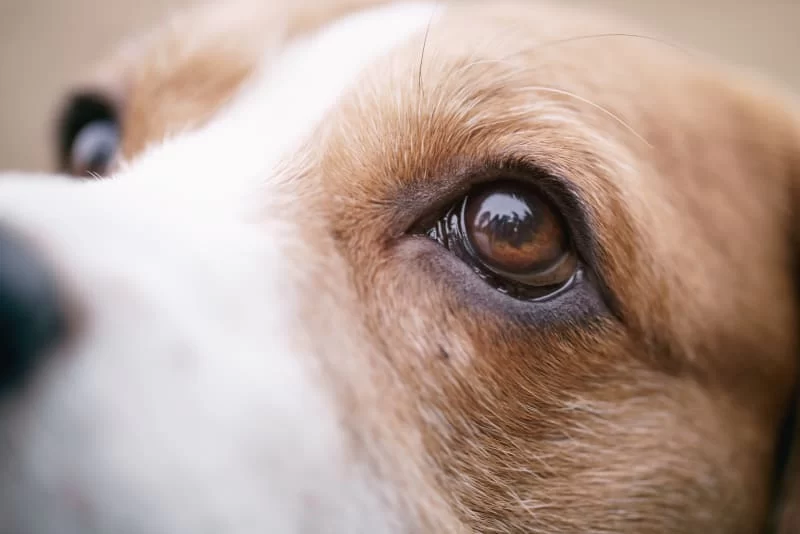Understanding the Importance of Pet Eye Exams
Just like humans, pets can experience a range of eye problems that, if left untreated, can lead to long-term issues or even blindness. The importance of pet eye exams cannot be overstated. Regular eye exams are a vital part of maintaining your pet’s overall health and well-being. While it may be easy to assume that your pet's eyes are perfectly healthy, certain eye conditions can develop gradually and may not show obvious symptoms until it’s too late. In this article, we will explore why eye exams for pets are so essential, how to recognize potential eye problems, and what you can expect during an eye exam at the vet.
Common Eye Problems in Pets
Pets, especially older ones, are prone to a variety of eye conditions that can affect their vision and quality of life. Here are some common eye problems in pets that can be detected through regular eye exams:
1. Cataracts
Cataracts are a common condition, particularly in older pets. They occur when the lens of the eye becomes cloudy, which can impair vision. If left untreated, cataracts can lead to blindness. Early detection through eye exams can help manage this condition and, in some cases, surgery may be recommended.
2. Glaucoma
Glaucoma is a painful condition where increased pressure in the eye damages the optic nerve. This can lead to vision loss and is often accompanied by redness, squinting, or excessive tearing. A comprehensive eye exam is essential to catch glaucoma early, as it can be managed with medication or surgery to prevent further damage.
3. Conjunctivitis
Also known as "pink eye," conjunctivitis is an inflammation of the eye's outer membrane. It can be caused by allergies, infections, or irritants. While conjunctivitis is treatable, it can lead to more severe complications if not addressed quickly, which is why routine exams are important.
4. Retinal Diseases
Retinal diseases, such as retinal atrophy, can cause vision loss in pets. These conditions often develop without noticeable signs in the early stages. Regular eye exams are critical for detecting retinal issues before they cause irreversible damage to your pet's eyesight.
5. Dry Eye
Dry eye, or keratoconjunctivitis sicca (KCS), occurs when there is insufficient tear production, leading to a dry and irritated cornea. If left untreated, dry eye can cause severe discomfort and even lead to corneal ulcers. This condition can be managed with medication, and early detection through eye exams can make a significant difference in treatment outcomes.
What to Expect During a Pet Eye Exam
Regular eye exams are essential for detecting potential problems early. Here’s what you can expect when you bring your pet in for an eye exam:
1. Visual Inspection
Your veterinarian will begin by visually inspecting your pet's eyes to look for any signs of redness, swelling, or discharge. They will also check for signs of abnormal growths, such as tumors or cataracts.
2. Pressure Testing
To check for glaucoma, your vet will use a tonometer to measure the intraocular pressure inside your pet's eyes. This non-invasive test helps detect any pressure buildup that could indicate glaucoma or other conditions that affect eye health.
3. Tear Production Test
Your vet may conduct a tear production test to determine if your pet’s eyes are producing enough tears. This is particularly important for diagnosing dry eye conditions, which can lead to significant discomfort if not managed properly.
4. Retinal Exam
During a retinal exam, your veterinarian will use an ophthalmoscope to examine the back of your pet’s eyes, including the retina and optic nerve. This test is crucial for detecting retinal diseases that may not be visible from the outside but can significantly impact your pet’s vision.
When Should You Schedule an Eye Exam for Your Pet?
It’s important to schedule regular eye exams for your pet, especially as they age. Typically, pets should have their eyes checked annually, but if your pet shows any of the following symptoms, you should schedule an appointment as soon as possible:
1. Excessive Tearing or Discharge
If you notice your pet's eyes are producing excessive tears or there’s discharge, this could indicate an eye infection or other condition. An eye exam can help determine the cause and appropriate treatment.
2. Squinting or Rubbing Eyes
Squinting or rubbing the eyes can indicate discomfort or irritation, potentially due to conditions like conjunctivitis or corneal ulcers. If your pet is exhibiting these behaviors, a thorough eye exam is necessary.
3. Change in Vision or Behavior
If you notice your pet bumping into things, avoiding bright lights, or acting more withdrawn, these could be signs of vision problems. Regular eye exams will help detect any vision loss early on and allow for prompt treatment.
4. Cloudy Eyes
If you notice that your pet’s eyes appear cloudy or have a bluish tint, it could be a sign of cataracts or other eye issues. Early intervention is key to preventing permanent vision loss.
Case Study: A Senior Dog's Journey to Better Eye Health
One case that stands out involved a senior dog named “Max,” who was brought to Hidden Brook Veterinary after his owner noticed that he was struggling to find his way around the house. Max had been squinting and avoiding bright light, which led to concerns about his vision. Upon examination, our veterinarians discovered that Max had developed cataracts, which were affecting his ability to see clearly. Thanks to early detection, Max underwent successful cataract surgery, allowing him to regain much of his vision. This case highlights the importance of regular eye exams, especially in senior pets, and how timely intervention can lead to positive outcomes.
How Hidden Brook Veterinary Can Help
At Hidden Brook Veterinary, we are committed to providing the highest quality care for your pet, including comprehensive eye exams to ensure their eye health is well-maintained. Our team of experienced veterinarians is dedicated to diagnosing and treating eye conditions promptly, so your pet can continue to live a happy, healthy life. Schedule an eye exam with us today to give your pet the best chance at clear vision and overall wellness.












